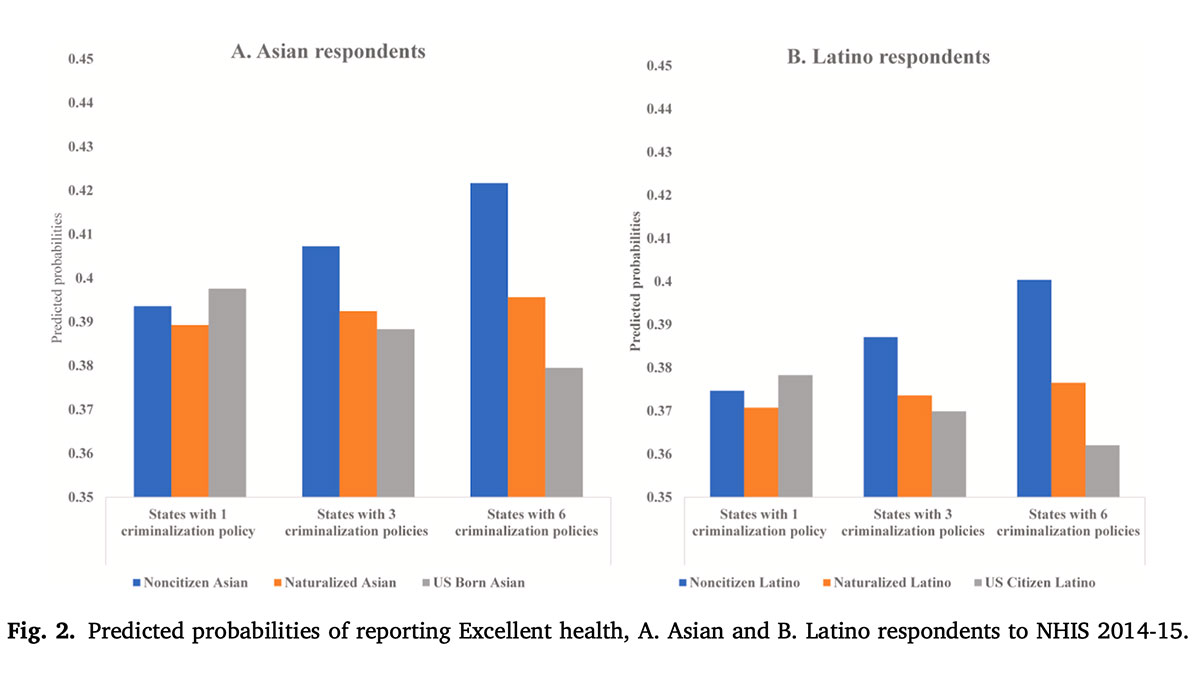Immigration legislation has become increasingly intertwined with the legal system in recent years, resurrecting policy ideas that conflate an immigrant with a criminal. While the federal government has sole authority over immigration law, states have more influence over immigration policy and enforcement than ever.
Undocumented Latinx immigrants are the primary targets of current criminalization legislation. Research has focused mainly on health inequities experienced among Latinx adults according to citizenship status. However, there is a long, ugly history of racist and discriminatory immigration policies directed against Asian populations in the United States. This history, combined with recent increases of anti-Asian hate crimes, may also affect the health of Asian and Pacific Islander citizens and immigrants alike, especially in places with more anti-immigration policies in place.
Maria-Elena De Trinidad Young and colleagues assessed if living in states with different amounts of immigration criminalization policies influenced how Latinx and Asian Pacific Islander (API) citizens and noncitizens rated their health between 2014-2015. They categorized the findings by citizenship status in states with 1, 3, or 6 immigrant criminalization policies. Examples of policies include citizenship verification to access public programs, laws to prevent the employment of undocumented immigrants, or allowing local police to assist in federal immigration enforcement (otherwise known as ICE).
In states with more than one criminalization policy, the authors predicted that noncitizens would be the least likely to report excellent health, and citizens would be the most likely to report excellent health. What they found was the exact opposite. API and Latinx U.S.-born and naturalized citizens were less likely to report excellent health than noncitizens in states with more than one criminalization policy. However, the noncitizen category includes undocumented and legal immigrants, which may influence the findings.
The authors speculate how the immigrant paradox could help explain the counterintuitive findings. For example, citizens may feel the health effects more severely, because they have lived with the reinforced racial profiling and discrimination that anti-immigration policies bring for longer periods of time. Alternatively, noncitizens may have improved socioeconomic resources in the U.S. compared to their home countries that is reflected in excellent health perceptions.
Even though current legislation continues to target Latinx immigrants, this study shows how criminalization policies may put all populations of color at risk regardless of citizenship status.
Databyte via Maria-Elena De Trinidad Young, et. al, Self-rated health of both US citizens and noncitizens is associated with state-level immigrant criminalization policies. SSM – Population Health, 2022.














